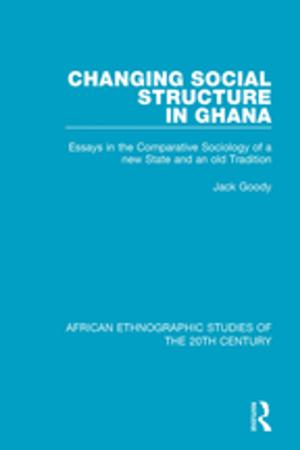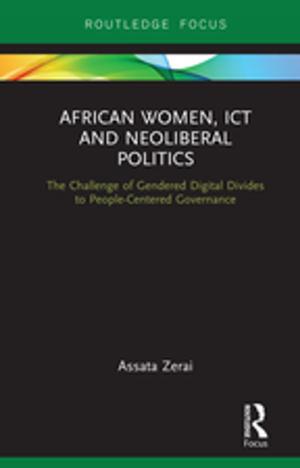The Elections in Israel 2003
Nonfiction, Social & Cultural Studies, Political Science, Government, Elections, Social Science| Author: | Michal Shamir | ISBN: | 9781351322263 |
| Publisher: | Taylor and Francis | Publication: | February 6, 2018 |
| Imprint: | Routledge | Language: | English |
| Author: | Michal Shamir |
| ISBN: | 9781351322263 |
| Publisher: | Taylor and Francis |
| Publication: | February 6, 2018 |
| Imprint: | Routledge |
| Language: | English |
The Elections in Israel--2003 brings together leading Israeli and North American social scientists and their state-of-the-art, in-depth analysis of the 2003 Israeli national elections. These elections returned Ariel Sharon and the Likud to power amid one of the bloodiest rounds of conflict between Israel and the Palestinians and a severe economic downturn in Israel. Contributors analyze the electoral behavior of the voters as a whole and various subgroups, highlighting social cleavages and identity, as well as issues and other strategic considerations. Three chapters analyze in detail the Arab, the national-religious, and the "Russian" vote. The 2003 elections saw Israel's return to the family of parliamentary nations after it experimented with the direct election of the prime minister from 1996 through 2001. The impact of the adoption and repeal of this unique Israeli system of government is another major topic covered in this volume, and several contributions explore the impact of these changes upon the electorate, the party system, and party financing. Other unusual features of the 2003 elections were the low turnout levels among Jewish and Arab voters; political moves to disqualify Arab candidates and lists from running for office, which were overruled by the Supreme Court of Israel; the collapse of the left, the spectacular showing of the centrist Shinui party, and the dominant status of the Likud in the Knesset and in Israeli politics. Through its focus on the 2003 elections, this volume also illuminates developments and changes in Israeli society and politics. Many of these developments--multiculturalism, changes in social stratification, the growing role of the judiciary and of the media, and political reforms--characterize other Western democracies as well, and these are discussed from a comparative perspective. The Elections in Israel--2003 will be of particular interest to those concerned with politics in Israel as well as those concerned with comparative politics and elections in general.
The Elections in Israel--2003 brings together leading Israeli and North American social scientists and their state-of-the-art, in-depth analysis of the 2003 Israeli national elections. These elections returned Ariel Sharon and the Likud to power amid one of the bloodiest rounds of conflict between Israel and the Palestinians and a severe economic downturn in Israel. Contributors analyze the electoral behavior of the voters as a whole and various subgroups, highlighting social cleavages and identity, as well as issues and other strategic considerations. Three chapters analyze in detail the Arab, the national-religious, and the "Russian" vote. The 2003 elections saw Israel's return to the family of parliamentary nations after it experimented with the direct election of the prime minister from 1996 through 2001. The impact of the adoption and repeal of this unique Israeli system of government is another major topic covered in this volume, and several contributions explore the impact of these changes upon the electorate, the party system, and party financing. Other unusual features of the 2003 elections were the low turnout levels among Jewish and Arab voters; political moves to disqualify Arab candidates and lists from running for office, which were overruled by the Supreme Court of Israel; the collapse of the left, the spectacular showing of the centrist Shinui party, and the dominant status of the Likud in the Knesset and in Israeli politics. Through its focus on the 2003 elections, this volume also illuminates developments and changes in Israeli society and politics. Many of these developments--multiculturalism, changes in social stratification, the growing role of the judiciary and of the media, and political reforms--characterize other Western democracies as well, and these are discussed from a comparative perspective. The Elections in Israel--2003 will be of particular interest to those concerned with politics in Israel as well as those concerned with comparative politics and elections in general.















